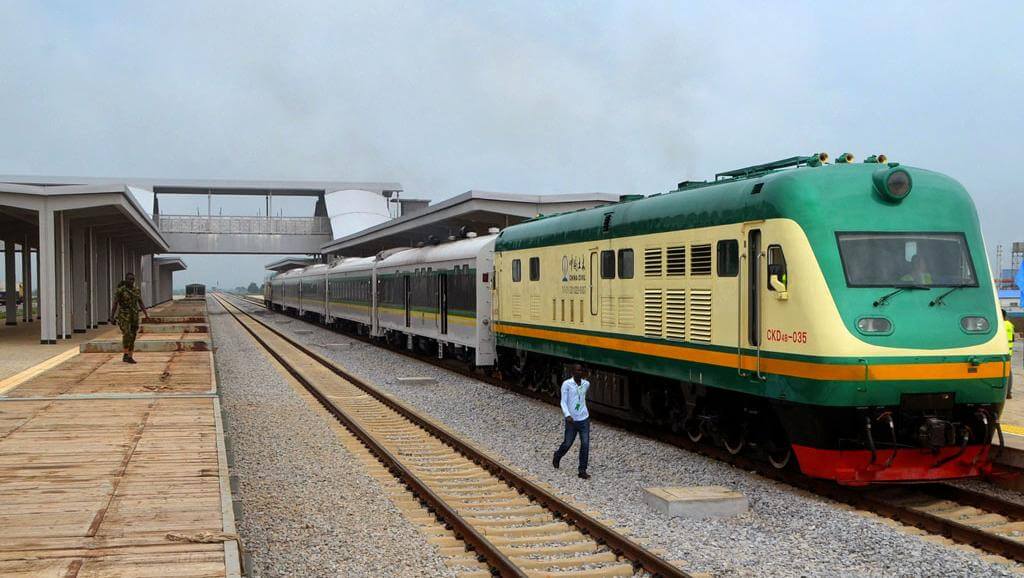The Federal Government on Thursday said it has so far released the sum of N1.732trn for the implementation of projects contained in the 2021 budget.
President Muhammadu Buhari, disclosed this during his presentation of the 2022 budget proposal to a joint session of the National Assembly.
Advertisement
Buhari had signed the 2021 Appropriation Bill of N13.588trn into law after it was passed on December 21 last year by the National Assembly.
The 2021 budget, according to the government, is aimed at accelerating the pace of Nigerian economic recovery, promote diversification, enhance competitiveness, and ensure social inclusion.
Buhari had while presenting the 2021 budget said the proposed N13.08trn expenditure comprised Capital Expenditure of N3.85trn, Non-debt Recurrent Costs of N5.65trn; Personnel Costs of N3.76trn; Pensions, Gratuities and Retirees’ Benefits of N501.19bn; Overheads of N625.5bn; Debt Service of N3.124trn; Statutory Transfers of N484.49bn; and Sinking Fund of N220bn to retire certain maturing bonds).
The President had said the 2021 budget deficit inclusive of Government Owned Enterprises and project-tied loans is projected at N5.2trn, adding that this represented 3.64 percent of the budget size.
Advertisement
The aggregate revenue available to fund the 2021 budget is projected at N7.89trn which is 35 per cent higher than the 2020 revised budget of N5.84trn.
Giving a breakdown of the implementation of the 2021 budget at the National Assembly, he said as at end of July 2021, a total of N6.79trn had been spent as against the pro-rated expenditure of N7.91trn.
Accordingly, he said a deficit of N4.17trn was recorded as at end of July 2021. The deficit, he noted, was financed through domestic borrowing.
Despite the country’s revenue challenges, the President told the lawmakers that his administration has consistently met debt service commitments.
“We are also up to date on the payment of staff salaries, statutory transfers, and overhead costs. As at 4th of October 2021, a total of N1.732trn had been released for capital expenditure.
Advertisement
“I am pleased to inform you that we expect to fund MDAs’ capital budget fully by the end of the fiscal year 2021.
“Capital releases thus far have been prioritised in favour of critical ongoing infrastructural projects in the power, roads, rail, agriculture, health and education sectors,” he added.
He explained further that his administration has made progress on the railway projects connecting different parts of the country.
The President added, “I am glad to report that the Lagos-Ibadan Line is now completed and operational.
“The Abuja-Kaduna Line is running efficiently. The Itakpe-Ajaokuta rail Line was finally completed and commissioned over 30 years after its initiation.
“Arrangements are underway to complete the Ibadan-Kano Line. Also, work will soon commence on the Port Harcourt-Maiduguri Line and Calabar-Lagos Coastal Line, which will connect the Southern and Eastern States to themselves and to the North.
Advertisement
“Progress is also being made on several power generation, transmission, and distribution projects, as well as off-grid solutions, all aimed towards achieving the national goal of optimizing power supply by 2025.
“I am again happy to report that we continue to make visible progress in our strategic road construction projects like the Lagos – Ibadan expressway, Apapa – Oworonsoki expressway, Abuja – Kano expressway, East-West Road and the second Niger bridge. We hope to commission most of these projects before the end of our tenure in 2023.”
Buhari also said his administration had stepped up implementation of the strengthened framework for performance management of government owned enterprises (GOEs), with a view to improving their operational efficiencies, revenue generation and accountability.
He added that the 50 per cent cost-to-income ratio imposed on the GOEs in the Finance Act 2020 has contributed significantly to rationalizing wasteful expenditures by several GOEs and enhanced the level of operating surpluses to be transferred to the Consolidated Revenue Fund (CRF).
He solicited the cooperation of the National Assembly members in enforcing the cost-to-income ratio and other prudential guidelines during their consideration of the budget proposals of the GOEs, which he laid before them



